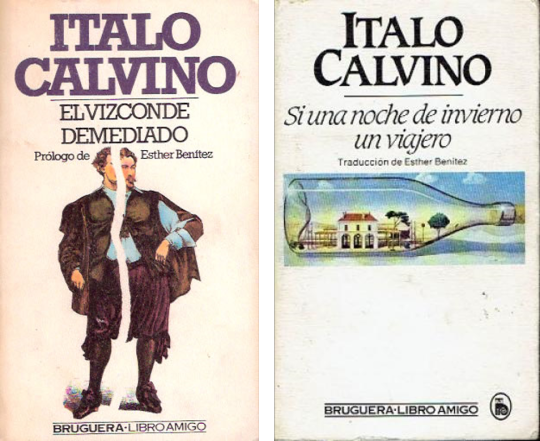Pop culture with a chance of poetry. Occasional awkward Spanish, perpetual awkward me.
Don't wanna be here? Send us removal request.
Text
Amor Callado/a by the numbers romance/in seven haikus
Sodium lights tint the perfect darkness. Their breaths come quick and shallow.
"It's all right that you loved her." In response he hides his face. Silence, and
Imperfect darkness. His voice curdles around a name. This time, her own.
"The name was hers, but the feeling belonged to you." Later they attend
That woman's wedding. During the vows he sits with arms crossed and jaw set.
She is very good at pretending not to see. She saw him once, that
Bright night, and she knows He’s never forgiven her words, or her silence.
2 notes
·
View notes
Photo

We are appalled by President Trump’s tweets about banning transgender people from military service. There are an estimated 15,000 transgender people already working in the Department of Defense, putting their lives on the line to protect our nation and its values. Those values do not include the heartlessness exhibited by Mr. Trump this morning. Discrimination has no place in our government, in our workplaces, our schools, or anywhere else in our lives.
While it’s still unclear what the actual policy ramifications of these tweets will be, we recommend keeping up with (and, if you can, donating to) the ACLU and the Transgender Legal Defense and Education Fund.
You can also directly tell the president how unacceptable his attack on American servicepersons is by using this form provided by the @transgenderfreedomproject.
We know there will be plenty of conversation about this on Tumblr in the coming days, and we urge you to take this moment to support and educate each other in whatever ways you can. And if you just need someone to talk to right now, there are people here to listen, 24 hours a day, seven days a week:
Trans Lifeline: A crisis hotline by and for the transgender community. 877-565-8860
National Suicide Prevention Lifeline: 1-800-273-TALK (8255)
Crisis Text Line: Text START to 741741
The Trevor Lifeline (@thetrevorproject): Confidential hotline for LGBTQ+ young people. 1-866-488-7386
The GLBT National Help Center: Free and confidential peer support for the LGBTQ+ community at 1-888-843-4564. Youth Talkline: 1-800-246-7743
58K notes
·
View notes
Text
Orgullo Y Prejuicio

Es una verdad reconocida por todo el mundo que uno soltero dueño de una gran fortuna sienta un día u otro la necesidad de una mujer.
Aunque los sentimientos y opiniones de un hombre que se halla en esa situación sean poco conocidos a su llegada a un vecindario cualquiera, están tan arraigada tal creencia en las families que lo rodean, que lo consideran propiedad legítima de una u otra de sus hijas.
I wasn’t even planning to buy anything, but reading the first page just made me want to be charmed all over again in another language entirely.
Also this is totally an exercise in seeing what gets lost in translation. Yup, an exercise.
That’s my story and I’m sticking to it.
0 notes
Text
New Before Their Time: Twin Peaks

My column about Twin Peaks is up at Geekade! I forgot to mention Fire Walk with Me, but it’s probably just as well since I’ve only seen it once and all I can confidently say about it is that I now find my ceiling fans kinda terrifying.
0 notes
Photo
This looks so much like an Aperture Science warning sign.

The bottom of a Soyuz capsule, with instructions in English, Russian, and IKEA-diagram for bystanders to rescue the astronauts.
241 notes
·
View notes
Text
PREACH
No matter how many unread books I own, I will continue to buy new ones
14K notes
·
View notes
Text
Subtitles on? Or subtitles off?
Reblog with your answer in the tags.
13K notes
·
View notes
Photo
I love how she’s not visible when the shot begins.



661 notes
·
View notes
Text
Passing as well-adjusted qualifies as a skill set. It’s only ever done to put others at ease.
0 notes
Text
I’d like to see a Silicon Valley-esque dramatization of the rise and fall of webOS. Even if it would be more tragedy than comedy.
0 notes
Photo

Suspense for the season finale is killing me, but I won’t see it until the damn thing posts to iTunes.
0 notes
Text
Legion e Italo Calvino
[Because I need the practice and because why the hell, not I’m translating some posts into Spanish. Corrections are welcome, but please be gentle!]
¿Podemos hablar por un momento de Legion y Italo Calvino, el escritor postmoderno quien jugó con realidad, subjetividad, y lenguaje? No he leído todas sus obras, pero Legion saluda a tres por lo menos: Si una noche de invierno un viajero, El castillo de los destinos cruzados, y El vizconde demediado.

¿Cómo se conectan esta serie con estos libros? Hay indicios en la estructura narrativa poco convencional: los saltos por tiempo, las memorias inexactas, las realidades encajadas una a otra. (Sigo creyendo que las relaciónes de aspecto reflejen el nivel de realidad en cual la acción pasa, pero eso pensamiento es otro post.)
Ambos Si una noche de invierno un viajero y El castillo de los destinos cruzados juegan con cómo la gente construir y comunicar historias. También está allí en el cajón: In Capítulo 1, la ambulancia aparcado afuera de Clockworks pertenece al Cuerpo de Bomberos de Calvino. En Capítulo 4, Philly, la ex novia de David, trabaja como una agente de La Agencia Inmobiliaria de Calvino.

El vizconde demediado: Éste es la conexión más superficial, pero la mente de David es dividida por una manera similar al carácter titular de este cuento. En el libro, una bala de cañón rajó el vizconde en dos mitades. La separación es física y también moral: Su mitad mala vuelve a su señorío un malvado cruel y la mitad bueno pasa por el pueblo dando los vecinos la comida desde su plato y la ropa desde su cuerpo. Finalmente, las mitades se están reunidas, y los súbditos del vizconde están contentos se sienten aliviados a vivir con una persona ni bueno ni malo sino un ser humano ordinario. La mitad mala de David es un otro ser, pero si él no pueda desalojar al Shadow King David podría aprender pesar su hambre por poder y destrucción en contra de su propio inclinación natural a no matar a todo de humanidad.

Si una noche de invierno un viajero: La voz de esta novela se alterna entre la segunda y tercera persona – si, segunda, como Usted, lector. La premisa del cuento es que después de comprar y disfrutar un libro, descubrió que un error de impresión ha encuadernado otro libro atrás del primer capítulo. Cuando trata de cazar el resto, Usted se encuentra en su propia trama arcana, complejo con una interés amorosa y una intriga internacional, todo mientras lee una serie de primeros capítulos no acabados en su caza de terminar el primer libro. Los títulos de los capítulos de los libros entre el libro suman a su propia frase, la que podría ser la frase que empiece otro libro. (¡Breaking Bad no lo hizo primer!) Este libro y Legion ambos hablan de realidades encajadas o paralelas, y creo que tendría razón decir que a veces David se siente como su vida está narrada a su mismo – a veces poco fiable – por fuerzas externas.

El castillo de destinos cruzados: En este libro, algunos viajeros buscan refugio en un castillo extraño ubicado en medio de la nada. El castillo les ofrece su hospitalidad – hace muchos años que leo este libro, pero creo que comida y bebidas aparezcan para todos en el comedor – pero nadie puede hablar. Extraños sin la plática: tan incómodo. Después de cenar, alguien saca una baraja de cartas de tarot, y cada viajero toma unas para explicar quién es y cómo llega al castillo. El atractivo y peligro de cartas de tarot, por supuesto, es que son extrañas y también familiares, y por eso se pueden asumir cualquier significa dado por el distribuidor o el lector. El narrador del libro interpreta el cuento de cada mano de cartas, pero los lectores no pueden estar seguros cuánto esta narración armonizaría con la que quiere decir el viajero. ¿Suena familiar? Y más, Legion ha obligado a sus personajes comunicar sin diálogo oíble al menos dos veces. En el Capítulo 5, se cae el silencio (obligatorio: cuando se haga la pregunta) justo antes de que el equipo de Summerland entrar a la casa de dónde se creció David. Y Capítulo 7 tuvo esa secuencia tanta espectacular en el estilo una película muda.
Estoy muy emocionada por el episodio final. ¡No puedo esperar verlo!
0 notes
Text
I write for an awesome site called Geekade and stuff like this is why I love the place. My own list would be a bit different, but when an author is as prolific as Neil Gaiman that seems entirely besides the point. Check out the site -- if you geek out about it, someone at Geekade is talking about it!
Geekade Top Ten: Neil Gaiman Long Form Fiction
It’s a great time to be Neil Gaiman. His latest book, Norse Mythology, debuted on the New York Times’ bestseller list. American Gods, based on the novel of the same title, debuts on TV next month. And a filmed adaptation of Good Omens is finally in development at Amazon, with the author at the helm. So what better time, then, to celebrate some of his work? Neil Gaiman is a God among book geeks, considered by many, myself included, to be their favorite author. Any entity with so passionate a fan base is bound to be extremely sensitive about a ranking concerning said entity. So it is with great trepidation that I approach this task and ask you all to remember that, while I am doing my best to be objective here, at the end of the day, these are my opinions. I am as entitled to them as you are to yours. Let’s not fight, let’s just love Neil Gaiman and every word that comes out of his brain.
Categorizing Gaiman’s work is tough because his oeuvre is so expansive and varied. I had to limit this somehow and the easiest way was to eliminate his children’s picture books , which I HIGHLY recommend. They are all charming and fun, gorgeously illustrated, and provide excellent alternatives when gift-giving that most parents haven’t seen before and will be glad of the breath of fresh air. I always give Blueberry Girl or Instructions at any baby shower that requests a book instead of a card. I’d say even if there are no children in your life, if you love Neil Gaiman, you’ll enjoy looking at these and possibly donating a copy or two to your local library. In the same vein, his short fiction is out. I am also excluding Norse Mythology by the logic that a retelling is a different animal than long form fiction. (Also I haven’t read it yet…sorry). On the other hand, I have decided to include some of his longer juvenile fiction and YA work to round out the list because YA writing is as legit as any work of “adult” fiction. Fight me. Sandman is also in here; although it is a graphic novel, there is enough writing there to qualify it as long form fiction. Also, this series is a gateway drug for many comic fans becoming Gaiman fans; it’s too important not to include. As the man himself wrote, “Sometimes you wake up. Sometimes the fall kills you. And sometimes, when you fall, you fly.” So, here we go.
10. Fortunately the Milk - FtM is definitely a juvenile book, but in a much longer form than a picture book. This grand tale, suitable for middle grades readers, tells of wild adventures a Dad gets caught up in, all while out on a mundane errand like buying more milk to go with breakfast. The set up is relatable enough to children to be believable and the fantastic and funny mishaps Dad encounters will crack them up and keep them reading. It’s an excellent way to introduce young readers to the work of a parent’s favorite author.
9. Stardust - Stardust is a love story, Gaiman style. Its most masterful achievements are the fantasy world of Faerie and the rich, non-traditional characters. It provides a lovely twist that flips a traditional fairy tale narrative on its ear. It’s more lighthearted than most of his other works, which isn’t to say it isn’t good, but it is a bit out of his lane. Additionally, many readers find the lead character Tristan grating, thus knocking it this far down on the list. But on a list of works of this quality, good things fall to the bottom. Still very much worth the read.
8 - Coraline - This is Gaiman’s take on a parable, warning of the dangers of wishes. It is at the same time for kids and not for kids. It’s a young adult story, I suppose, but appeals to older adults as well. Gaiman’s guilty many times over of writing unique, realistic children and putting them in strange and creepy circumstances. He walks the fine line between condescension and understanding, making the characters relatable while still reminding us, often painfully, of our own youth. This story ranks here only because it is a good, but not the best, example of his ability to do so; it’s a rating of the story against other of his stories, not on its own merits, which are excellent.
7 - Ocean at the End of the Lane - Like most of Gaiman’s work, this is a beautiful, dark work of genius. It’s a captivating story of long-forgotten memories unearthed by a visit to a mysterious place from the narrator’s childhood. It’s a book to read to remind you what it’s like to be a child, encouraging you to revisit unexplained, mystical experiences of youth from an adult perspective. As one Goodreads reviewer aptly put it, “In short, it is a Neil Gaiman novel.” It’s not his best or best-known work, but it’s definitely representative of him. It makes a good recommendation for readers who don’t know, but are interested in, his work and for those who know some of his work, but are unfamiliar with this fairly-recent release.
6 - Anansi Boys - This not-quite sequel to American Gods tells the story of Fat Charlie and Spider, children of a deceased God and brothers who never knew each other in their father’s lifetime. Gaiman’s talent for taking a small part of a larger story and blowing it up into its own narrative is part of what makes him such a master. This novel is an excellent example of his ability to create rich worlds and fully fleshed out characters. It also shows off his knack for incorporating mythical elements from oral storytelling traditions of cultures other than his own. It’s a fun, fast read, not quite up to the caliber of some of his greater works, but that’s hardly a criticism.
5 - Neverwhere - This is a great work of modern urban fantasy with possibly Gaiman’s most relatable protagonist, an office worker thrust into a fantastical world beneath the streets of London. It’s a story most of us would imagine (or have imagined) ourselves in, written as only Gaiman can and a world we want to spend far more time in, even after the story is over. As a standalone story, it’s a good entry point into the author’s work, but reader beware, it will leave you wanting more.
4 - The Graveyard Book - Yes, this children’s book is placed awfully high up on the list, but it has won some of the most prestigious awards in literature (notably the Hugo award and the Newbery medal) and quite deservedly so. For one thing, Nobody Owens is a phenomenal protagonist and for another, this is just such a remarkable, fun, exciting story as only Gaiman can tell it. It has the potential to become scary at just about every turn, but thanks to the author’s humor and talent, it never really does. This is truly one to be enjoyed by readers of ALL ages and for that reason, it deserves high placement in the NG canon.
3 - Good Omens - It gives me serious pain not to rank this number one. Not only is it my favorite of Gaiman’s books by far, it is my favorite book, period. But this is a list of his best books, not my favorites, not to mention it’s a co-write with beloved, recently-departed fantasy author Terry Pratchett. Still, if you’ve missed out reading this one, and I find even many diehard fans have, do yourself a favor and correct that IMMEDIATELY. This book is as insightful as it is hilarious. It is a foundational book for me, in terms of my sense of literary appreciation, my humor, and my religious belief system. It’s a tale of the apocalypse gone awry. You can bet your ass I got some serious side-eye when I introduced it in my 10th grade English class as my favorite book, which is kind of the best praise I feel I can give for it and if you understand what I mean, then this book is for you.
2 -Sandman series - If you haven’t already wanted to hang me up by my toenails because you disagree with my opinions, you’re probably about to. This series is…not for me. Don’t get me wrong, it’s good. It’s great. It’s a masterpiece in the field of the graphic novel. But that’s a medium I’ve never been a huge fan of and I suppose that’s why I never connected with it. The fact that I believe it should be ranked this highly in spite of that missing connection speaks to its outstanding quality. If you love Gaiman, you probably love this series and I’m not going to tell you you’re wrong. But I can’t give it the top spot because it’s not what he does best.
1 - American Gods - This is what he does best. This is storytelling at its finest. This is Gaiman, pulling from legends of old, seasoning them with his dry British wit, crafting a fascinating tale, setting it in a universe that sits just kitty-corner to our own, and drawing his audience in, such that they don’t want to leave, even after the last page is turned. It’s no wonder that fans have been clamoring for an on-screen adaptation for years, one they’ll finally lay eyes on next month, and heaven help the show’s creators (see what I did there?) if they fandom doesn’t approve. If you’ve been living under a rock and have therefore never read any Neil Gaiman and you’re wondering what his best, most representative work is? Look no further.
Now if you’ll excuse me, I’m going to disappear to an undisclosed location and stay off social media for a month to avoid the wrath from holders of differing opinions. I know not everyone will agree with me, but if we’re all talking about, celebrating, and reading books by our favorite author, that’s really the most important thing, right?
4 notes
·
View notes
Text
It just now dawned on me that David can't see his father's face because he telepathically/subconsciously sensed he was adopted.
0 notes
Text
Legion & Italo Calvino
Can we talk for a minute about Legion and Italo Calvino, the postmodern writer who played with reality and subjectivity and language? I haven’t read all Calvino’s work, but Legion is definitely nodding to If on a winter’s night a traveler, The Castle of Crossed Destinies, and The Cloven Viscount.

Whence the connection? There are nods in Legion’s unorthodox narrative structure: the time jumps, the unreliable memories, the nested realities. (I still think the changing aspect ratios reflect the level of reality in which something occurs, but more on that elsewhere.) If on a winter’s night and The Castle of Crossed Destinies both play with how people construct and communicate histories. It’s also right there on the tin: In Chapter 1, the ambulance parked outside Clockworks belongs to the Calvino Fire Department. In Chapter 4, David’s ex-girlfriend Philly is a real estate agent at Calvino Realty.

The Cloven Viscount: This is the most superficial connection, but David’s consciousness is divided in a manner similar to this story’s titular character. In the book, a cannonball splits a viscount in half. The separation is physical as well as moral: His evil half returns to his manor a mustache-twirling villain and his good half runs around giving villagers the food off his plate and the clothes off his back. Eventually the two halves are reunited, and the viscount’s subjects are pleased to once again answer to a person who is neither wholly good nor evil but familiarly human. Obviously David’s “evil half” is another entity, but if he can’t evict The Shadow King entirely David may have to learn to balance a hunger for power and wanton destruction against his own natural inclination not to, you know, Kill All Humans.

If on a winter’s night a traveler: This novel alternates between the second and third person – yes, second, as in you, the reader. The premise of the story is that you bought a book and got hooked on the first chapter, only to discover that a printing error bound an entirely different book behind it. You attempt to hunt down the remainder of the book you meant to buy only to find yourself caught up in an arcane plot of your own, complete with love interest and international intrigue, all the while reading a series of apparently unrelated first chapters in your unsuccessful quest to finish the original book. The titles of the chapters of the books within the book all add up to a sentence of their own, which could itself be the opening sentence to yet another chapter. (Breaking Bad didn’t do it first, y’all!) Both this book and Legion deal with nested and parallel realities, and I think it’s fair to say that David must sometimes feel that his life is being narrated to him – sometimes unreliably – by outside forces.

The Castle of Crossed Destinies: In this book, a bunch of travelers seek shelter at a random castle in the middle of nowhere. The castle offers them hospitality – it’s been years since I read this; I think food and drink just appear for everyone in the dining room? – but no one can speak. Strangers sans small talk: Awkward. After dinner, one of the travelers produces a pack of tarot cards, and everyone grabs a handful to explain who they are and how they wound up there. The allure and danger of tarot cards, of course, is that they are at once alien and familiar, and so can assume whatever meanings the dealer or viewer assign to them. The book’s narrator interprets the story of each spread, but readers are never sure how closely this narration would match the story the dealer set out to tell. Sound familiar? On top of that, Legion has forced characters to communicate without audible dialogue at least twice. In Chapter 5, silence falls (obligatory: when the question is asked) just before the Summerland crew enters David’s childhood home. And Chapter 7 had that spectacular silent movie sequence.
In other news, I cannot WAIT for this season’s finale.
0 notes
Text
Hello World
This seems as good a time as any to inaugurate this thing.

0 notes